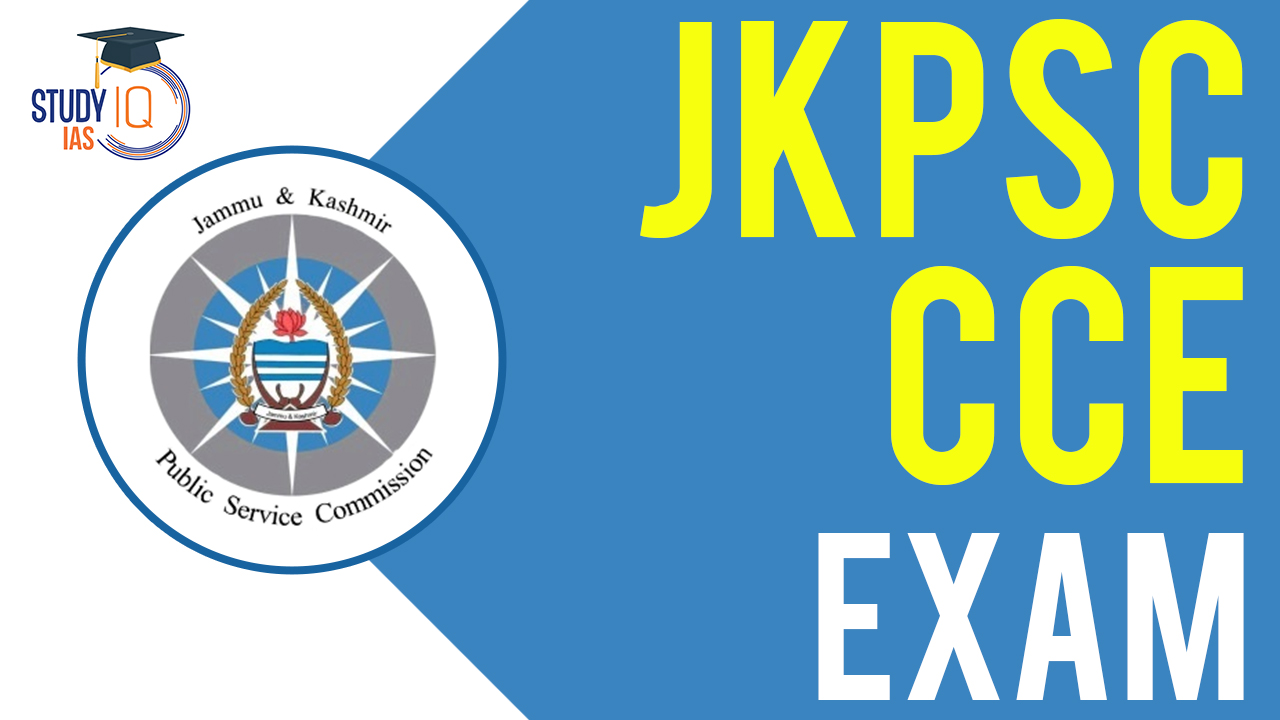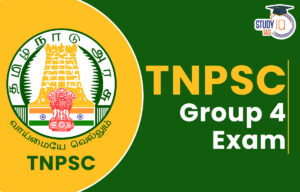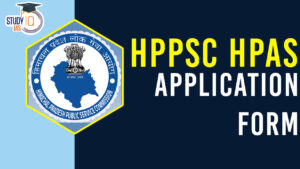The Jammu and Kashmir Public Service Commission (JKPSC) has released the JKPSC KAS Exam Date 2025 for Prelims on its official website. The Commission is going to conduct the KAS Prelims on 23rd February 2025 in two sessions. This announcement is crucial for aspirants who are preparing for the Jammu and Kashmir Administrative Services (KAS) exam, aiming for prestigious administrative roles within the state.
JKPSC CCE Prelims 2025 Out
The JKPSC Combined Competitive Examination (CCE) 2025 is conducted to recruit candidates for prestigious administrative posts in Jammu and Kashmir. The Prelims examination was held in offline mode earlier this year, and the result has now been released in the form of a merit list.
JKPSC CCE Prelims Result 2025 PDF
JKPSC KAS Prelims Exam Date 2025 Out
JKPSC KAS Prelims Exam Date 2025 has been released by the Jammu and Kashmir Public Service Commission (JKPSC). The KAS Prelims Exam is scheduled to be held on 23rd February 2025, conducted in two sessions in various centers. Aspirants aiming for administrative roles in Jammu and Kashmir should prepare effectively, as this competitive exam serves as the first step toward a prestigious career in state services. Candidates can download their official JKPSC Prelims admit card from the official website when it is released. Stay focused, follow a study plan, and regularly practice mock tests to excel in this examination.
JKPSC KAS 2025
Jammu and Kashmir Public Service Commission conduct the JKPSC KAS Recruitment for Group A and B Services. The JKPSC Exam is divided into three stages of the JKPSC exam: Prelims, Mains, and Personal Interviews, while some posts may have a modified procedure. Candidates will only be invited to the final interview round if they pass the preliminary and main exams. The Notification for KAS Exam for the 2024 – 25 cycle has been released. The Application process will start soon on its website.
| Overview |
| Name of Organization |
JKPSC |
| Exam Conducting Organisation |
JKPSC – Jammu and Kashmir Public Service Commission |
| Name of the Post |
Administrative Services (Junior Scale of J&K), J&K Police (G) Service, and J&K Accounts (G) Service |
| Total Vacancy |
90 Vacancies |
| JKPSC KAS Notification |
26th July 2024 |
| Category |
State PSC |
| Selection Process |
- Preliminary Exam
- Main Exam
- Interview
|
| State |
Jammu Government Jobs |
| Result |
JKPSC Prelims Result 2025 Out |
JKPSC Vacancy
Commission has released the 90 vacancies for JKPSC Exam 2024 -25. Previously its was 75 vacancies. The table below contains specific information regarding each open position.
| Post Name |
Vacancy 2021 |
Vacancy 2023 |
Vacancy 2024 |
| Junior Scale of J&K Administrative Services |
56 |
25 |
30 |
| J&K Police (G) Service |
141 |
25 |
30 |
| J&K Accounts (G) Service |
60 |
25 |
30 |
| Total |
257 |
75 |
90 |
JKPSC Eligibility Criteria
The Age Limit for applicants for the recruitment must fall between 21 and 32. As of the final date of the advertisement, the required age must be met. Age concessions will be made to some candidates by government standards. Any discipline-specific bachelor’s degree is required for candidates.
JKPSC Physical Requirement
The JKPSC Physical Requirement for the police services has been provided below for the candidates for both genders:
| JKPSC Physical Requirement |
| Candidates |
Male Candidates |
Female Candidates |
| Height |
165cm |
150cm |
| Chest Girth (Min) |
84cm |
79cm |
| Expansion |
5cm |
5cm |
| For Candidates from Leh Kargil |
| Height |
160cm |
145cm |
| Chest Girth (Min) |
79cm |
79cm |
| Expansion |
5cm |
5cm |
JKPSC Syllabus 2025
Candidates who are preparing for the JKPSC Exam 2025 should know the JKPSC Syllabus and Exam Pattern to enhance the preparation experience for the JKPSC Exam. The JKPSC Syllabus is divided into two parts:-
JKPSC Prelims Syllabus
| Subject for Prelims |
Prelims Syllabus |
| GS – Paper I |
- Indian History and Freedom Struggle Movement;
- Geography of the world and India
- Indian Constitution, Governance, and Indian Polity
- Economy of India
- Environment and Ecology
- Science and Technology
- Current Events of all Issues around National and International Issues
|
| GS – Paper-II |
- English Comprehension
- Interpersonal skills including communication skills;
- Logical reasoning and analytical ability;
- Decision-making and problem-solving;
- General Aptitude & Mental Ability
|
JKPSC Mains Syllabus
| JKPSC Syllabus for Mains |
| Subject for Mains |
Mains Syllabus |
| English Paper |
- English Language – Comprehension Passage Writing,
- Writing of Precis,
- Vocabulary and Usage,
- Short Essays.
|
| Paper I of General Studies |
Art and Culture: Heritage of India and Culture, Indian Art Forms, Indian Literature and Architecture of India.
History of India – Modern Indian history from about the middle of the eighteenth century until the present- significant events, personalities, and issues. The Freedom Struggle – its various stages and important contributors /contributions from different parts of the country. Post-independence consolidation and reorganization within the country.
World History – Industrial Revolution, World War I and II, redrawing of National Boundaries, Colonization and Decolonization, Different Political Philosophies such as Communism, Capitalism, Socialism etc.
Society – Diversity of India. Role of women and women’s organizations, Issues on Population, Poverty and Unemployment, Issues Related to Developmental Urbanization. Globalization and its on Indian society, social empowerment, Communalism, Regionalism & secularism.
Geography – World Physical Geography, Distribution of Natural Resources, Important Geophysical phenomena – Earthquakes, Tsunami, Volcanic activity, Cyclone etc., geographical features and their location, changes in critical geographical features (including water bodies and icecaps) and in flora and fauna and the effects of such changes. |
| Paper-II of General Studies |
- Indian Constitution- historical underpinnings, evolution, features, amendments, significant provisions and basic structure.
- Functions and responsibilities of the Union and the States, issues and challenges pertaining to the federal structure, devolution of powers and finances up to local levels and challenges therein. Separation of powers between various organs disputes redressal mechanisms and institutions.
- Comparison of the Indian constitutional scheme with that of other countries. Parliament and State Legislatures – structure, functioning, conduct of business, powers & privileges and issues arising out of these.
- Structure, organization and functioning of the Executive and the Judiciary Ministries and Departments of the Government; pressure groups and formal/informal associations and their role in the Polity.
- Salient features of the Representation of People’s Act.
- Appointment to various Constitutional posts, powers, functions and responsibilities of various Constitutional Bodies.
- Statutory, regulatory and various quasi-judicial bodies.
- Government policies and interventions for development in various sectors and issues arising out of their design and implementation.
- Development processes and the development industry- the role of NGOs, SHGs, various groups and associations, donors, charities, institutional and other stakeholders.
- Welfare schemes for vulnerable sections of the population by the Centre and States and the performance of these schemes; mechanisms, laws, institutions and Bodies constituted for the protection and betterment of these vulnerable sections.
- Issues relating to development and management of Social Sector/Services relating to Health, Education, Human Resources.
- Issues relating to poverty and hunger.
- Important aspects of governance, transparency and accountability, e governance-applications, models, successes, limitations, and potential; citizens charters, transparency & accountability and institutional and other measures.
- Role of civil services in a democracy.
- India and its neighbourhood- relations.
- Bilateral, regional and global groupings and agreements involving India and/or affecting India’s interests.
- Effect of policies and politics of developed and developing countries on India’s interests, Indian diaspora.
- Important International institutions, agencies and fora- their structure, mandate.
|
| Paper III of General Studies |
Indian Economy and issues relating to planning, mobilization of resources, growth, development and employment.
- Inclusive growth and issues arising from it.
- Government Budgeting.
- Major crops cropping patterns in various parts of the country, different types of irrigation and irrigation systems storage, transport and marketing of agricultural produce and issues and related constraints; e-technology in the aid of farmers.
- Issues related to direct and indirect farm subsidies and minimum support prices; Public Distribution System- objectives, functioning, limitations, revamping; issues of buffer stocks and food security; Technology missions; economics of animal-rearing.
- Food processing and related industries in India- scope and significance, location, upstream and downstream requirements, supply chain management.
- Land reforms in India.
- Effects of liberalization on the economy, changes in industrial policy and their effects on industrial growth.
- Infrastructure: Energy, Ports, Roads, Airports, Railways etc.
- Investment models.
- Science and technology- developments and their applications and effects in everyday life.
- Achievements of Indians in science & technology; indigenization of technology and developing new technology.
- Awareness in the fields of IT, Space, Computers, robotics, nano-technology, bio-technology and issues relating to intellectual property rights.
- Conservation, environmental pollution and degradation, environmental impact assessment.
- Disaster and disaster management.
- Linkages between development and spread of extremism.
- Role of external state and non-state actors in creating challenges to internal security.
- Challenges to internal security through communication networks, role of media and social networking sites in internal security challenges, basics of cybersecurity; money-laundering and its prevention.
- Security challenges and their management in border areas; linkages of organized crime with terrorism.
- Various Security forces and agencies and their mandate.
|
| Paper IV -Ethics and Integrity |
- Ethics and Human Interface: Essence, determinants and consequences of Ethics in human actions; dimensions of ethics; ethics in private and public relationships. Human Values – lessons from the lives and teachings of great leaders, reformers and administrators; the role of family, society and educational institutions in inculcating values.
- Attitude: content, structure, function; its influence and relation with thought and behaviour; moral and political attitudes; social influence and persuasion.
- Aptitude and foundational values for Civil Service, integrity, impartiality and non-partisanship, objectivity, dedication to public service, empathy, tolerance and compassion towards the weaker sections.
- Emotional intelligence-concepts, and their utilities and application in administration and governance.
- Contributions of moral thinkers and philosophers from India and the world.
- Public/Civil service values and Ethics in Public administration: Status and problems; ethical concerns and dilemmas in government and private institutions; laws, rules, regulations and conscience as sources of ethical guidance; accountability and ethical governance; strengthening of ethical and moral values in governance; ethical issues in international relations and funding; corporate governance.
- Probity in Governance: Concept of public service; Philosophical basis of governance and probity; Information sharing and transparency in government, Right to Information, Codes of Ethics, Codes of Conduct, Citizen’s Charters, Work culture, Quality of service delivery, Utilization of public funds, challenges of corruption.
- Case Studies on above issues.
|
| Subjects of Optional Paper |
- Agriculture
- Animal Husbandry and Veterinary Science
- Anthropology
- Botany
- Chemistry
- Civil Engineering
- Commerce and Accountancy
- Economics
- Electrical Engineering
- Geography
- Geology
- History
- Law
- Management
- Mathematics
- Mechanical Engineering
- Medical science
- Philosophy
- Physics
- Political Science & International Relations;
- Psychology
- Public Administration
- Sociology
- Statistics
- Zoology
- Literature of any one of the following languages:
- Arabic, Dogri, English, Hindi, Kashmiri, Persian, Punjabi, Sanskrit and Urdu.
- The syllabus for the optional subject will be available in some time.
|
Candidate can solve JKPSC Previous Year Question Paper Here!
Sharing is caring!


 TNPSC Group 4 Notification 2025 Out for ...
TNPSC Group 4 Notification 2025 Out for ...
 GPSC Class 1 and 2 Call Letter 2025 Out,...
GPSC Class 1 and 2 Call Letter 2025 Out,...
 HPPSC HPAS Application Form 2025, Apply ...
HPPSC HPAS Application Form 2025, Apply ...





















